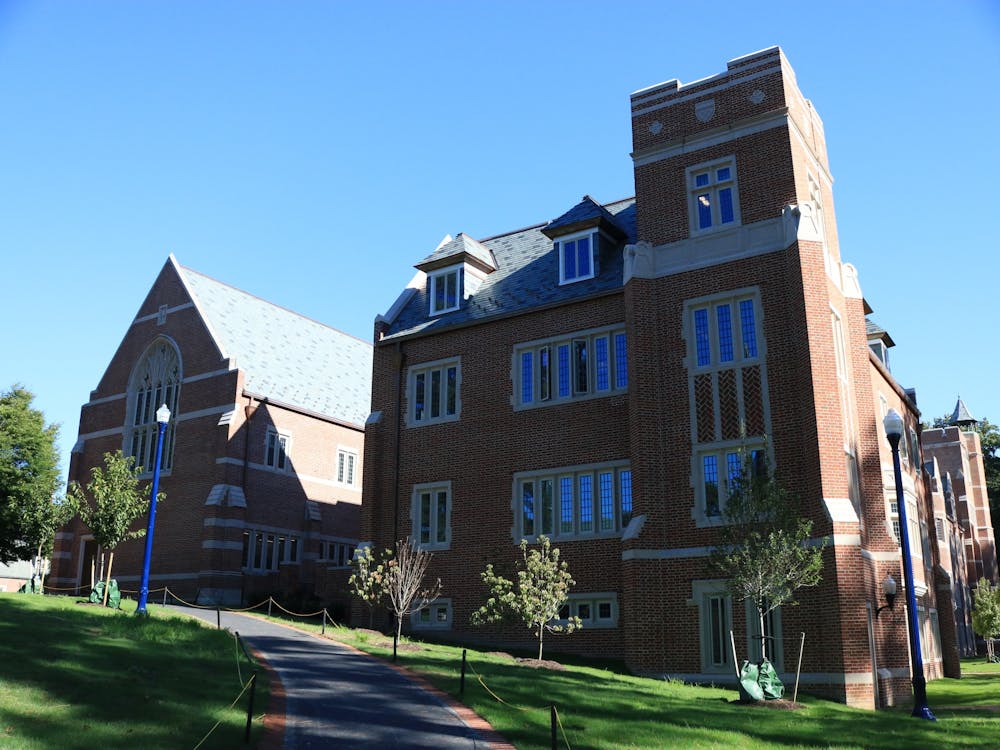Everyone has a hero. He is someone who makes you work harder. Someone who makes you dream bigger. Someone who keeps you going to the gym. In a way, we consider ourselves underdogs, fighting to get to the top. Heroes keep us fighting. But, perhaps they need us, too.
Hero worship begins at an early age, said senior Kate Hudson, whose research project titled "Heroes and Underdogs" takes a look at the relationship children have with one of their first heroes: Athletes. In the process, Hudson discovered that the relationship, in fact, is symbiotic.
Hudson is working with psychology professor Scott Allison. He has had an interest in heroes and how they work into the fabric of society since he taught the Core course and said one of the ways heroes enter into our lives is through the stories we tell.
"Suddenly I'm teaching Dante, Shakespeare, Plato, epic stories," Allison said. "I'm reading all these epic stories, and I started thinking, wow people really love stories, and people love underdogs. What all these epics have in common is a hero."
Allison has worked on a number of research projects with students dealing with the "Underdog Phenomenon." He is currently on sabbatical for the semester writing a book on heroes and villains and how people construct them and what psychological functions they fulfill.
Hudson's interest in the hero-underdog relationship was sparked with her encounters by children as a college athlete. During and after women's soccer games, children come up to Hudson and teammates and squeal as if they were Miley Cyrus.
"This starts at a very young age," Allison said. "I'm an adult at 40 years old. I still need a hero. It's part of the human experience to have someone to look up to."
Last semester, Hudson and Allison shared ideas and discussed how they could explore the hero-underdog relationship in early life. Hudson spent her summer working on the project through a grant from the Center for Civic Engagement. In the process, she helped connect the University of Richmond athletic community to greater Richmond.
Through her volunteerism at YMCA and Churchill Activities and Tutoring (CHAT), where she interacted with a wide range and number of young people, Hudson asked some of the children to participate in her research project.
"I wanted to see the impact of the hero on the child," Hudson said. "What was the positive effect when looking into how the same relationship benefits the athlete?"
She chose nine children to observe interacting one-on-one with a Richmond athlete. During these hour-and-a-half sessions, Hudson recorded the conversations Richmond football, lacrosse and soccer players had with children ranging from ages 6 to 12. She gave each a survey before and after their encounters to gauge how it affected them.
"I knew going in that the kids would be overwhelmed and excited to meet the athletes," Hudson said. "But what I didn't know was how much it would benefit [the athletes].It was like a bomb went off. It was immediate, how well the athletes reacted."
Enjoy what you're reading?
Signup for our newsletter
The athletes responded so well to the exercise that many asked Hudson how else they could interact with these children on a regular basis. Football team members are considering joining CHAT to volunteer weekly. Now, says Hudson, there are bonds between the teams and the local community that won't erode.
Parents have called Hudson asking how their children could participate again. Children are interested in going to college, looking forward to reading and going to school. One of the children even cried during the session out of sheer admiration for the athlete.
"Our campus is small, there are ways for our campus to go out and make a difference," Hudson said.
The benefits of the interactions for the community have been obvious. Hudson is still mining through her data to reach conclusions about the psychological impact the hero-child relationship has. She plans on scheduling more interactions to strengthen her research conclusions.
"It's a very dependent relationship," Hudson said. "It's not just one depending on the other. They need each other, they thrived off each other. They took energy from their interactions."
Most importantly, however, Hudson said, "We are excited about what we are doing and how it could help the community."
Contact staff writer Megan Wilson megan.wilson@richmond.edu
Support independent student media
You can make a tax-deductible donation by clicking the button below, which takes you to our secure PayPal account. The page is set up to receive contributions in whatever amount you designate. We look forward to using the money we raise to further our mission of providing honest and accurate information to students, faculty, staff, alumni and others in the general public.
Donate Now


